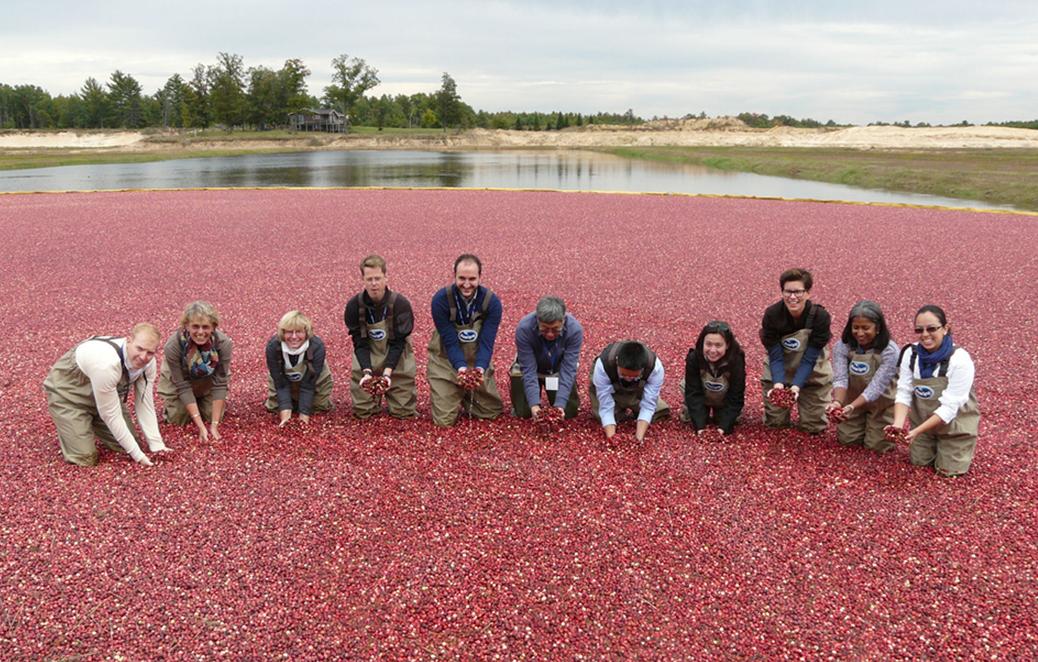Wisconsin Welcomes the World

Photo: Agricultural attachés from around the world explore a cranberry marsh in Warrens, Wisconsin.
Phil Karsting, Foreign Agricultural Service Administrator
Wisconsin is known worldwide for its cheese, but what about its cranberries, ginseng, urban agriculture or innovative biofuels research? Last week, I had the opportunity to help expand the global reputation of Wisconsin beyond dairy. I shared the diversity of American agriculture with representatives from over 20 countries through a tour of Wisconsin.
Agricultural attachés from around the world are usually stationed at their countries’ embassies in Washington, DC – close to the politics but far away from most American agriculture. To give these representatives a real look at our industry, USDA-FAS arranges annual tours to various parts of the United States. It’s a great opportunity for the attachés to learn about the variety that exists in American agriculture, to see some of our innovative approaches, and to meet the farmers who provide products exported to their countries.
Before the trip, many of the attachés assumed American agriculture consisted entirely of large farms that mainly produce bulk crops like corn and soybeans. They left with the understanding that, while many farmers do produce those crops, there is a world of diversity in American agriculture – from what we produce to how we do business.
At Alsum Farms in Friesland, we saw a vertically integrated business that not only grows potatoes and onions, but also owns the packing house and the trucks used to transport the products. Alsum farms also packages and ships for other producers in the area.
The attachés also learned how cooperatives are a popular and successful business model in the United States. Organic Valley and Accelerated Genetics, both thriving co-ops, shared their stories with us. Organic Valley is the largest organic farmer-owned co-op in North America, with over 1700 members. Accelerated Genetics is one of the largest co-ops of its kind in the U.S. exporting dairy and beef genetics to more than 70 countries.
Another highlight of the trip was seeing cranberry production from start to finish. The attachés visited the Wetherby Cranberry Company to explore a marsh and learn about harvesting cranberries. Then they visited an Ocean Spray plant to see how those harvested cranberries become the dried, sweetened treat known as “Craisins.” Participants were especially impressed by Ocean Spray’s commitment to good manufacturing practices to maintain food safety.
For many of the communities we visited, agriculture is the economic engine powered by many different kinds of operations. Our agricultural system can’t be described in just a few words – it is multifaceted and complex. I’m glad I was able to share that complexity with officials from around the world. I know they will take that knowledge back to Washington and to their home countries, furthering their agricultural ties with the United States.
